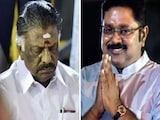- Union Minister Nitin Gadkari said fuel will be 100 per cent bio-ethanol in the future
- India is aiming for 20 per cent ethanol-blended petrol by 2025/26
- But there are questions being raised about the impact of the ethanol-blended petrol on vehicles and engines
The fuel of the future will be 100 per cent bio-ethanol, Union Road Transport and Highways Minister Nitin Gadkari said Monday at a summit on green and renewable energy organised by NDTV.
Mr Gadkari's statement comes amid growing public discontent over the government's plan E20 plan, i.e., to blend all petrol sold in the country with 20 per cent ethanol by 2025/26.
"Pollution has reduced post ethanol use... the aim is to curb the carbon footprint (of vehicular traffic in the country) and reduce our use of fossil fuel," Mr Gadkari said at the NDTV summit.
India, Mr Gadkari pointed out, is one of the biggest and most important economies in the world and, consequently, also has one of the largest number of vehicles per capita.
Only China and the United States have more motor vehicles per capita than India.
The E20 plan is part of the government's EBP, or ethanol-blended petroleum, programme to reduce the country's dependence on fossil fuels and ensure cleaner vehicular emissions.
Ethanol blending averaged 12.06 per cent in 2022/23 and rose to 14.6 per cent the next year. By February this year , it had reached 19.6 per cent. The 20 per cent mark was crossed soon after.
However, car owners across the country have voiced concern over the impact of the blended fuel on their vehicles, particularly older models whose engines may not be tuned for the fuel.
One car owner called the E20 move "outright fraud" and threatened legal action.
READ | "Forcing Blended Fuel...": Consumer Slams Ethanol Petrol Policy
"If anything happens to my vehicle due to ethanol-blended (adulterated) petrol, I will not hesitate to drag every single official in the Petroleum Ministry to court. We have every legal and constitutional right to do so," the furious individual, identified as Venkatesh Alla on X, said.
He accused the government of forcing E20 on consumers.
"Forcing blended fuel... when our vehicles aren't designed for itis outright fraud. You have no authority to dictate what fuel we must use. Pure and blended petrol should be sold separately... let the consumer decide.... Who the hell gave you the right to damage our vehicles?"
Last week the government said such fears are "largely unfounded" and are not backed by scientific proof. "The narrative - that ethanol blending in petrol is harming vehicles or causing undue hardship to consumers lacks a technical foundation," the Petroleum Ministry said.
READ | "Not Real Facts": Centre Dismisses Concerns Over Ethanol-Blended Petrol
The ministry acknowledged ethanol has a lower energy density, which may lead to a slight reduction in mileage. But it said the drop was minor and well within acceptable limits.
According to estimates, the fall in fuel efficiency is between one and two per cent for four-wheelers designed for 10 per cent ethanol blends, or E10, and calibrated for E20.
This could increase to three to six per cent for other vehicles.
On concerns about potential engine corrosion, particularly in older cars and two-wheelers, the ministry said safety standards were already in place. Ethanol-compatible materials and corrosion inhibitors are mandated through specifications by the standards agencies.
The government also said the blended fuel programme is essential for cutting crude oil imports - a topic of particular concern amid increasingly unstable global geopolitics, dominated by US President Donald Trump's outrageous 50 per cent tariffs on India for buying Russian oil.
Since 2014-15, blending has saved over Rs 1.4 lakh crore in foreign exchange, the government said, and reduced carbon emissions by 700 lakh tonnes.
And, because ethanol is made not from agricultural products, like sugarcane and crop waste, it is eco-friendly and economically viable, allowing farmers to earn over Rs 1.2 lakh crore so far.















